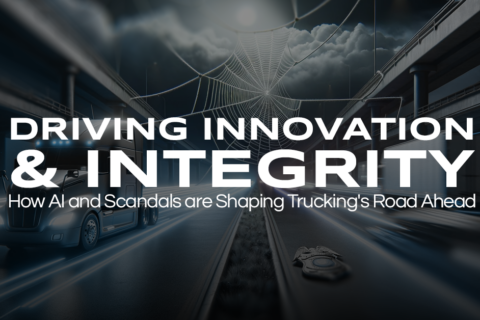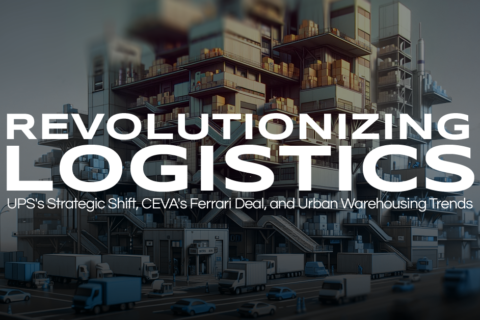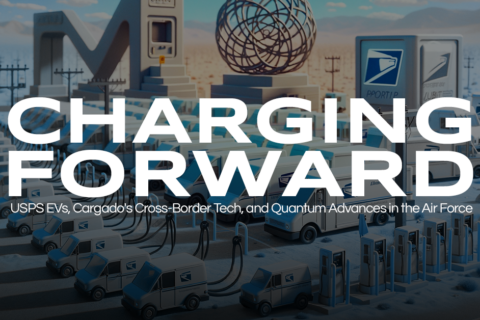Driving Innovation and Integrity: How AI, CDL Changes, & Scandals are Shaping Trucking’s Road Ahead
Buckle up for a journey through the latest twists and turns in the trucking and logistics world. From the tech-driven revolution in freight scheduling by C.H. Robinson to the tangled web of a CDL scandal shaking the Massachusetts State Police, these narratives are driving conversations across highways and beyond. Also steering into the spotlight is a contentious proposal by the FMCSA, sparking widespread debate among truckers over potential shifts in CDL requirements. Each story unfolds against the backdrop of an industry at a crossroads, facing technological advancements, ethical quandaries, and regulatory hurdles. Let’s navigate these stories together, shining headlights on the road ahead for truckers and logistics professionals everywhere. AI Takes the Wheel: Revolutionizing Truckload Scheduling In the rapidly evolving logistics industry, C.H. Robinson Worldwide Inc. has just flipped the script on traditional freight management. The company unveiled a groundbreaking software that promises to transform truckload appointment scheduling by eliminating the need for human intervention entirely. This cutting-edge tool leverages artificial intelligence to automate a process that, until now, required manual effort roughly 1 billion times annually. Automating for Efficiency Hailing from Eden Prairie, Minnesota, C.H. Robinson is pioneering the way with its “touchless appointments” system. The software cleverly utilizes AI to sift through transit-time data from millions of shipments, pinpointing the optimal times for both pickup and delivery. Already in use by 2,545 customers across more than 25,000 facilities, this innovation marks a significant leap forward since its initial uptake in September 2022. The company’s strategic rollout underscores its commitment to enhancing internal productivity before making the technology widely available. Redefining Logistics Technology Touchless appointments stand as a testament to the untapped potential within logistics tech, heralding a new era of efficiency and accessibility. By streamlining the scheduling process, shippers can avoid the cumbersome task of manual appointment management, while brokers facilitate quicker load distribution within their carrier networks. This not only accelerates the freight booking process but also translates to cost savings for shippers, a win-win scenario that underscores the transformative power of automation in logistics. A Vision for the Future With shippers ranking efficient appointment scheduling as a top IT priority, C.H. Robinson’s innovation couldn’t be timelier. The company’s president of North American Surface Transportation, Michael Castagentto, champions the technology’s ability to seamlessly match loading docks with carriers, ensuring timely freight delivery. This announcement closely follows Uber Freight’s adoption of a new scheduling standard, signaling a broader industry shift towards streamlined, tech-driven operations. As logistics firms increasingly embrace automation, the future of freight management looks promisingly efficient and interconnected. 🔗 Discover the future of logistics with touchless scheduling here Scandal Unravels at State Police Commercial Licensing Unit In a twist that reads like a crime drama, the Massachusetts State Police find themselves at the heart of a scandal involving the illegal issuance of commercial driver’s licenses (CDLs). Joel Rogers, alongside five others, has been charged in a scheme that facilitated over two dozen individuals in acquiring CDLs through dubious means. This operation, revealing a shadowy side of law enforcement, underscores the challenges within the system. A Web of Deceit The scheme’s unraveling came with Rogers’s retirement, closely following Gary Cederquist’s departure under a cloud of dishonor. With Rogers’s annual earnings reported at $175,804, the plot thickens, revealing a network of State Police employees and civilians entangled in fraudulent licensing activities. These revelations come amidst ongoing internal and federal investigations aimed at cleansing the force of corruption and restoring integrity to the CDL issuing process. Shocking Revelations and Systemic Flaws The indictment paints a picture of a corrupt system where licenses were exchanged for bribes, implicating retired troopers, a commercial driving school employee, and others in the scandal. The accused exploited their positions, bypassing the necessary tests for license issuance, a breach that not only questions their ethics but also endangers public safety. With the State Police’s reputation on the line, the agency vows for transparency and reform, including the implementation of body cameras during tests and increased supervision. Towards a Transparent Future As the State Police grapple with this and past controversies, the focus shifts to rebuilding trust through stringent oversight and technological advancements. The addition of new personnel and modern record-keeping practices signifies a step towards accountability. However, the journey to redemption is long, with the community’s eyes closely watching the department’s commitment to upholding the law and ensuring public safety. 🔗 Explore the full details of the State Police CDL scandal here Truckers Voice Concerns Over Proposed CDL Changes In the world of trucking, safety is paramount. Yet, a recent proposal by the Federal Motor Carrier Safety Administration (FMCSA) has sparked a wave of concern among the trucking community. The FMCSA’s notice of proposed rule making seeks to modify commercial driver’s license (CDL) requirements in ways that some fear might compromise road safety. The changes, aimed at increasing flexibility for driver licensing agencies and applicants, have already attracted significant attention from truckers nationwide. Proposed Reforms and Pushback The FMCSA’s proposed adjustments include allowing CDL skills tests to be taken outside an applicant’s home state, permitting commercial learner’s permit holders to drive without a qualified CDL holder present, and eliminating the mandatory 14-day waiting period for the skills test after receiving a permit. Additionally, it calls for third-party knowledge examiners to meet the same standards as state examiners. While these measures intend to streamline the licensing process, they’ve met with skepticism from experienced truckers. Within days of opening for public comment, the proposal drew dozens of critical responses on Regulations.gov, highlighting concerns over the potential for increased accidents and insufficient training. Voices from the Road Veteran truckers like Will Scott and Jason Griffin have voiced strong opposition, emphasizing the importance of rigorous skills testing and the risks of diluting training standards. Their insights reflect a broader apprehension about the implications of these changes for road safety and the quality of new entrants into the profession. The sentiment among many is that these modifications may serve the interests of larger carriers at the expense of thorough…





Recent Comments